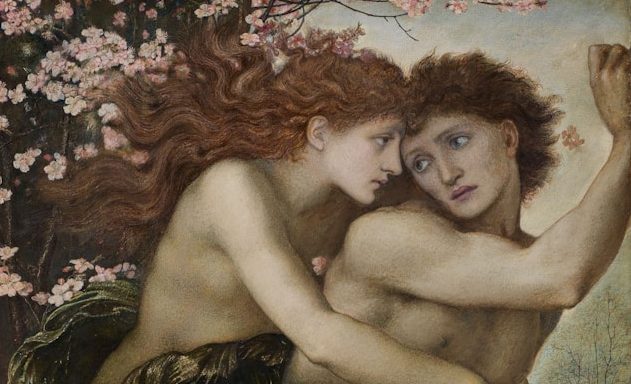Georgia’s Book Nook: Echoes of the ancients – mythology through a contemporary lens
Classical retellings and literature based off ancient mythology has been a theme in literature for a long time: it is also a theme that transcends genre. There are many works of fiction, non-fiction, and poetry inspired by the myths of different cultures.
As a classicist myself, it can be hard to look past the way an author may have interpreted the myths, if we ourselves have our own preferred version, however, one of the wonders of this niche type of literature is the different ways these ancient stories have been interpreted, and for what reasons. Is it to list the ‘facts’ in a new work of non-fiction, or perhaps the use of ancient motifs applied to modern challenges. Each new way the myths are used enriches our overall understanding and appreciation of the stories.
A Review: Psyche and Eros
Born into an era of heroes, a prophecy claims that Psyche – Princess of Mycenae – will defeat a monster feared even by the gods themselves. Rebelling against society’s traditions, she spends her youth mastering blade and bow, preparing to fulfil her destiny.
But she is soon caught up in powers beyond her control, when the jealous Aphrodite sends the god of Desire, Eros, to deliver a fatal love-curse. The last thing Eros wants is to become involved in the chaos of the mortal world, but when he is pricked by the very arrow intended for Psyche, he is doomed to love a woman who will be torn from him the moment their eyes meet.
Thrown together by fate, headstrong Psyche and world-weary Eros will face challenges greater than they could have ever imagined. And as the Trojan War begins and the whole of the heavens try to keep them apart, will they find their way back to each other before it’s too late?
Written by Luna McNamara and released in the summer of 2023, this particular work of fiction has stuck with me since I first read it last year. It masterfully combines the myth of Eros and Psyche with the style, language and themes of a modern romance novel. This is something I have not seen done in any other books of this style and genre, which is what made it really stand out to me. I gave this 4/5 stars when I first read it, but the more I re-read it, the more I can appreciate its unique collaboration between traditional myth and modern romance.
The themes and messages behind the myths: Carol Anne Duffy
Duffy’s poetry is a truly magnificent example of how ancient mythology and fairytales can be used to carry powerful modern messages. I will refer specifically here to her collection The World’s Wife. This collection contains a myriad of mythological references, using well known characters such as Medusa and Penelope. My favourite poem from this collection has to be ‘Thetis’.
Thetis was a nereid, a sea nymph, and the mother of Achilles. A mortal king named Peleus desired Thetis, and was told he could only have her, should he be able to hold her down. Thetis was able to shape-shift into anything, yet Peleus succeeded in overpowering her, and she became his wife. Duffy’s poem follows her desperate changing of forms, and Peleus’ pursuit. Duffy uses Thetis’ myth as a metaphor for the unwelcome attention and experience often experienced in the modern day by women. This is the same case for many of Duffy’s poems that carry mythological connotations, which aim to bring attention to the experiences of the modern women and the struggles we face, which I think is such a powerful way to use these ancient stories, as they really carry an impact.
Recommendations
Jennifer Saint: Ariadne, Hera, Elektra, Atalanta
These mythological retellings stick close to the original myths, with the exception that they provide depth to the woman’s side of the story, as these characters have all been wronged by the men in their original myths and were treated as side characters or even ‘collateral damage’ in the original myths. Saint’s books really give them the spotlight they deserve.
Thames and Hudson: A Guide to Gods
A collection of books written by authors with knowledge in different mythological cultures, these books are a must for anyone who wants to know the facts and origins behind the myths of different civilisations. They do not only focus on Rome and Greece, but have many other guides, such as Norse mythology, or Chinese mythology. It is the most extensive range of cultures I have found when searching through classical non-fiction.
Sylvia Plath: Ariel
Released two years after her death, Plath’s second poetry collection contains many mythological themes in the same way that Duffy’s poetry did. Plath used mythology in her poetry as a way of expressing her thoughts and troubles in the lead up to her death. In a similar way to Duffy’s poetry, Plath focuses on the experiences of classical women who have been mistreated to portray her struggles.
It is safe to say that the use of mythology and classical re-tellings are a really popular topic in literature right now. As the genre and style of these books becomes more well known, the more unique types of re-tellings and interpretations are given to us! For example, Glorious Exploits is a new style of classical retelling and literature, that has been described as ‘semi-unhinged’ historical fiction, as it follows a pair of Sicilian men who try to put on a play during the Peloponnesian war with Athenian prisoners of war. This is always a style and genre worth reading and looking out for, as it has so many different things to offer! I might be biased as a classicist, but I hope I might have been able to convince you to give some of this literature a go if you haven’t already!

Comments